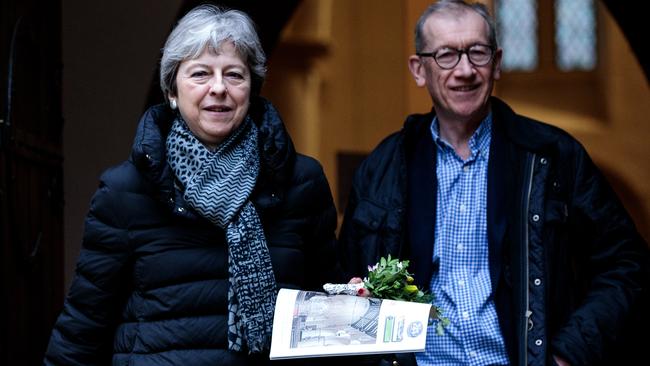EU leaders move to solve Irish backstop
EU leaders this week meet Ireland’s president to find a way through the Irish backstop problem.

The European Union is moving quickly to tackle the very issue that it was largely content to leave festering amidst British politics: the Irish border.
As Theresa May decides whether to placate her Brexiteer Tories or her Remainer Tories with a series of crisis points this week to find a way through the Brexit deadlock, the EU leadership is meeting with Ireland leaders to work out how a potential no deal might work.
Confronting the very conundrum that has exercised the minds of British MPs for nearly a year since the contentious Irish backstop was revealed, Ireland Prime Minister Leo Varadkar will meet with French president Emmanuel Macron in Paris tomorrow (Tuesday). German Chancellor Angela Merkel will then fly to Dublin later in the week.
The EU leaders are worried that the UK will leave the EU without a deal on April 12 if no concrete plan is put forward by the time of an emergency EU meeting on April 10.
Mrs May wants to present her withdrawal agreement to Westminster for a fourth time this week, possibly for the vote to be held on Wednesday morning AEDT.
This would be after a series of non-legally binding indicative votes are held again tomorrow morning. Last week eight indicative votes failed to find any majority for any type of Brexit but Remainer MPs have been arguing that a softer Brexit with a customs union could get a majority in the House of Commons this time with the support of the Scottish Nationalist Party. But over 100 senior Conservatives have warned Mrs May not to break the Tory party manifesto which rules out any customs union type of Brexit. Cabinet members on both Remain and Leave positions have threatened to resign depending which way Mrs May leans.
The outcomes over the next few days could be as varied as backbenchers attempting to legislate for a softer Brexit; a Labour-initiated vote of no confidence in the government; or even Mrs May calling a snap general election.
Yet to avoid a no deal Brexit, which would legally happen on April 12, the parliament has to have some sort of Brexit plan and formally ask the EU to extend the Brexit deadline once again.
Mr Macron is believed to be taking a hardline position and is not keen to allow the UK any long Brexit extension, fearing it will hamper other EU projects, particularly his pet idea of a federated Europe. All 27 EU member states have to agree on any extension.
The EU’s position could become clearer if the EU leaders can determine how Ireland could protect the European single market as well as standing by the Good Friday Agreement.
Ireland foreign minister Simon Coveney said the Irish government will move to focus on preparing for an “emergency of an accidental crash out Brexit.’’
He said while the EU would listen to any request from Westminster, the upcoming discussions will focus on protecting the single market.
He said: “I think a lot of the discussion in Paris and Dublin will be planning for a no-deal Brexit to ensure we all understand how EU countries need to support each other, how we can collectively protect the integrity of the single market while at the same time ensuring we don’t undermine a peace process on this island.
“If the UK doesn’t follow through on that commitment (of regulatory alignment), the EU and Ireland have to find a way unilaterally of protecting the single market while at the same time trying to prevent a physical border infrastructure and protecting an all island functioning economy in those circumstances will be difficult.
“I’ve always maintained that a no deal Brexit is unlikely but it has become a real possibility now in a way that perhaps hasn’t been the case until now and yes, we will continue to work to finding a deal or a longer extension but we also have to factor in the possibility of an accidental no deal Brexit.”




To join the conversation, please log in. Don't have an account? Register
Join the conversation, you are commenting as Logout